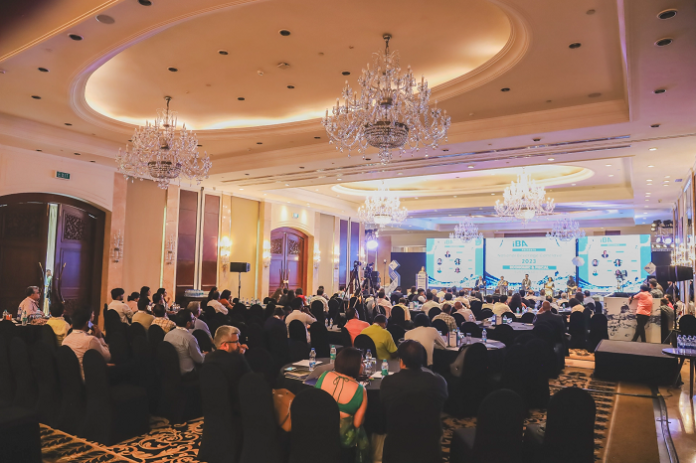The Indian Beverage Association (IBA) is organizing the National Beverage Conclave 2024, which will be held at the ITC Maurya Hotel, Sardar Patel Marg, New Delhi. The conclave, scheduled for 4 December 2024, will focus on the theme of ‘Making India a Global Beverage Processing Hub.’
The conclave aims to position the non-alcoholic beverage Industry as a key driver of India’s transformation into a global beverage processing hub. The conclave will also lay touchstone emphasis on sustainable practices in beverage production, reflecting on the industry’s commitment to environmental responsibility.
It will spotlight the industry’s potential to solidify India’s position as a key player in the global beverage processing market and contribute towards the Government of India’s vision of “doubling farmer’s income and thereby the national economy as part of the “Viksit Bharat initiative.”
The event will bring together key stakeholders including policymakers, regulatory bodies, food processing & standards authorities, export & trade bodies and other key players within the beverage industry. The global non-alcoholic beverage market was valued at US$ 1.8 trillion in 2024 and is expected to reach US$ 3.8 trillion by 2034 rising at a CAGR of 7.75%. Similar growth can be observed within India as well, with the industry having a market size of approximately $16 billion in 2023, which is expected to grow to $23 billion by 2028 at a CAGR of 7.29%.
The Indian non-alcoholic beverage industry also plays a significant role in employment generation, with over a million jobs created across the value chain as of now, up from 6.9 lakh in 2019, driven by 30% market growth. The industry also supports millions of informal workers and contributes substantially to retail incomes, with beverages occupying over 85% of retail stores nationwide and accounting for 11% of the Total Income as an estimate of the retailer’s revenue.
Despite being the world’s largest producer of key raw materials like banana, mango, lime, papaya, milk, and sugar, India’s potential as a global beverage processing hub remains untapped due to supply chain gaps and regulatory challenges. Scaling up processing facilities and adopting modern standards can position India as a leader in global beverage production.
Commenting on the conclave, JP Meena, secretary general, IBA stated, “India holds immense potential to emerge as a global hub for beverage processing. The upcoming National Beverage Conclave 2.0 aims to create meaningful dialogues to help the industry grow. For this event, we are bringing together industry partners and policymakers to unlock and elevate our potential. As an association, we are dedicated to driving innovation, fostering investment, and enabling collaboration to firmly establish India as a global leader in the beverage industry.” He added that major players had already invested Rs 50,000 crore in the sector in the last few years and that investments could rise to Rs 80,000 crore in the next five years with the right facilitative environment.
The conclave will build on IBA’s roadmap for making India a global beverage processing hub by 2030. It will focus on best practices, policy recommendations, and fostering an ecosystem that drives export-oriented growth, innovation, and international collaboration. It aims to position India as a global beverage processing hub, leveraging the non-alcoholic beverage industry’s potential to contribute significantly to the nation’s economic growth and its journey toward becoming a 5 trillion-dollar economy.
IndiFoodBev — authentic, impactful and influential
An English-language food and beverage processing and packaging industry B2B platform in print and web, IndiFoodBev is in its third year of publication. It is said that the Indian food and beverage industries represent approximately US$ 900 billion in revenues which implies more than 20% of the country’s GDP. Eliminating the wastage on the farmside can help to deliver more protein to a higher number of the population apart from generating sizable exports. The savings in soil, seeds, water, fertilizer, energy and ultimately food and nutrition could be the most immense contribution that country is poised to make to the moderation of climate change.
To improve your marketing and grow sales to the food and beverage processing and packaging industry, talk to us. Our research and consulting company IppStar [www.ippstar.org] can assess your potential and addressable markets in light of the competition. We can discuss marketing, communication, and sales strategies for market entry and growth.
Suppliers and service providers with a strategy and budget for targeted marketing can discuss using our hybrid print, web, video, and social media channels to create brand recognition linked to market relevance. Our technical writers are ready to meet you and your customers for content.
The second largest producer of fruit and vegetables in the world is continuously expanding processing capacities and delivery systems with appropriate innovative technologies. We cover product and consumer trends, nutrition, processing, research, equipment and packaging from farm to thali. Get our 2025 media kit and recalibrate your role in this dynamic market. Enhance your visibility and relevance to existing markets and turn potential customers into conversations. Ask for a sample copy of our bi-monthly in print or our weekly IndiFoodBev eZine each Wednesday.
For editorial info@ippgroup.in — for advertisement ads1@ippgroup.in and for subscriptions subscription@ippgroup.in
Naresh Khanna – 10 February 2025
Subscribe Now











